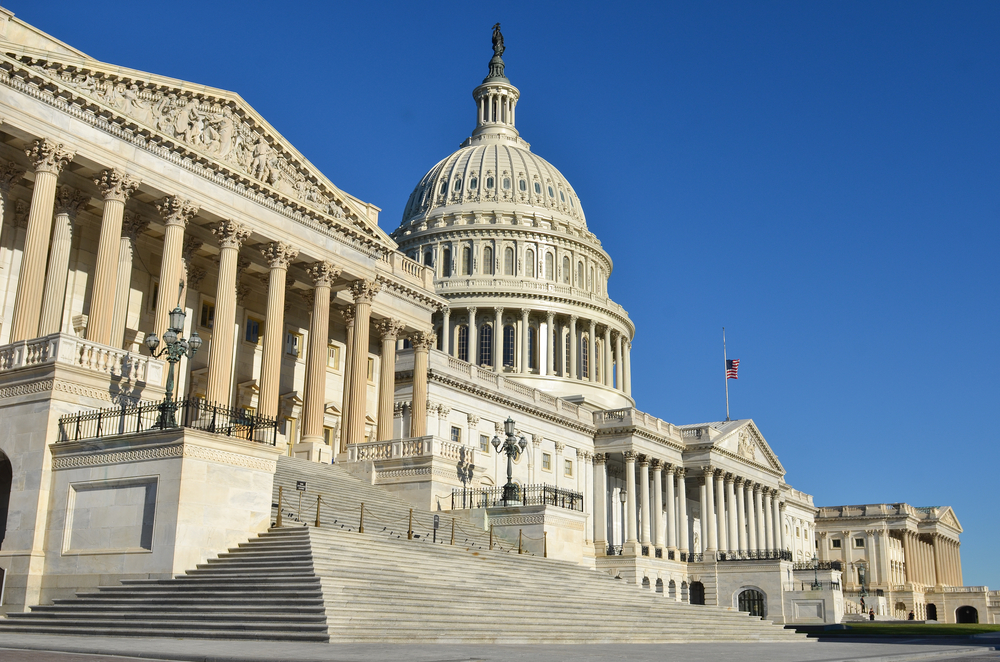Amendment in the Nature of a Substitute Fact Sheet

Amendment in the Nature of a Substitute Fact Sheet
The House Energy & Commerce Committee completed a markup of its comprehensive energy bill, H.R. 8 – the North American Energy Security and Infrastructure Act, on September 30, 2015. Although the bill passed out of Committee by a vote of 32-20, the bipartisan efforts that had gotten the bill this far broke down and the vote predominantly followed party lines. In advance of the markup, Chairman Upton released an Amendment in the Nature of a Substitute that contains several changes from the original bill, some of which have implications for energy efficiency. While the Alliance supports many of the additional provisions, there is one provision, related to building codes, which the Alliance strongly opposes. Due to the inclusion of this provision in the final bill, the Alliance opposes the North American Energy Security and Infrastructure Act.
The following provisions have been included in the amendment:
Section 4115: Energy Performance Requirement for Federal Buildings
This section is taken from the Energy Savings and Industrial Competitiveness Act (S. 720 and H.R. 2177, “Portman-Shaheen” and “McKinley-Welch” respectively). It would extend mandated energy consumption reduction targets for federal buildings through 2017. The Alliance supports this provision as it requires improvements in federal government facilities.
Section 4116: Federal Building Energy Efficiency Performance Standards; Certification System and Level for Federal Buildings
This section also draws from Portman-Shaheen/McKinley-Welch, but there are some differences. The portion that covers Federal Building Efficiency Standards is the same, but the portion describing
Certification for Green Buildings is different. Portman-Shaheen and McKinley-Welch offer a significantly more-detailed version than H.R. 8. The Alliance supports this provision.
Section 4125: No Warranty for Certain Certified Energy Star Products
Drawing from the Energy Star Program Integrity Act (H.R. 504 and S. 1038), this section would clarify that the participation of a product in the Energy Star program does not create an express or implied warranty. The Alliance supports this provision.
Section 4126: Clarification to Effective Date for Regional Standards
Updates Section 325 of the Energy Policy and Conservation Act by striking “installed” and inserting “manufactured or imported into the United States”.
Section 4151: Greater Energy Efficiency in Building Codes
The building energy code section draws from H.R. 1273, “Blackburn-Schrader”, and has serious implications for energy efficiency. This language would do three main things: weaken the certification process for state and local code adoption, limit the Department of Energy’s role in the code development process and mandates the use of a flawed and inappropriate cost-effectiveness metric called simple payback. The Alliance strongly opposes this provision.
Section 4152: Voluntary Nature of Building Asset Rating Program
This section is also taken from Blackburn-Schrader and explains that any program which allows the owner of a commercial or residential building to obtain a rating, score or label regarding actual or anticipated energy use shall be made available on a voluntary, optional and market-driven basis. Additionally, any information disseminated by the Secretary of Energy regarding such a program is not developed or intended to be the basis for a regulatory program by a federal, state, local or municipal government body. The Alliance opposes this provision.
Section 4161: Modifying Product Definitions
Modifies the Energy Policy and Conservation Act, specifically the section on modifying definitions of covered products and equipment. It also updates the section on the procedure for modifying these definitions. The Alliance supports this provision.
Section 4162: Clarifying Rulemaking Procedures
Would require the Secretary of Energy to offer the opportunity for public input prior to the issuance of a proposed rule. The Alliance supports this provision.
Section 4171: Smart Energy and Water Efficiency Pilot Program
Drawing from the Smart Energy and Water Efficiency Act, H.R. 3143, introduced by Representatives McNerney (D-Calif.) and Kinzinger (R-Ill.), and S. 886, introduced by Senator Udall (D-N.M.). This section would establish a smart energy and water efficiency management pilot program, which is designed to award grants to eligible entities to demonstrate advanced and innovated technology-based solutions that will: increase and improve energy efficiency in water, wastewater and water reuse systems, support the development and installation of automated systems that provide real-time data on energy and water, and improve energy and water systems through the use of Internet-connected technologies. Within H.R. 8, the Secretary is directed to use not more than $15 million for this program. This provision is also present within the Senate comprehensive energy bill – S. 2012, the Energy Policy Modernization Act. The Alliance supports this provision.
Section 4172: WaterSense
This would create a voluntary program within the Environmental Protection Agency entitled “WaterSense” to identify water-efficient products, buildings, landscapes, facilities, processes and services. The language in this section draws from H.R. 291 from Rep. Napolitano (D-Calif.) and from S. 176 from Sen. Boxer (D-Calif.). The Alliance supports this provision.
STAY EMPOWERED
Help the Alliance advocate for policies to use energy more efficiently – supporting job creation, reduced emissions, and lower costs. Contact your member of Congress.
Energy efficiency is smart, nonpartisan, and practical. So are we. Our strength comes from an unparalleled group of Alliance Associates working collaboratively under the Alliance umbrella to pave the way for energy efficiency gains.
The power of efficiency is in your hands. Supporting the Alliance means supporting a vision for using energy more productively to achieve economic growth, a cleaner environment, and greater energy security, affordability, and reliability.



